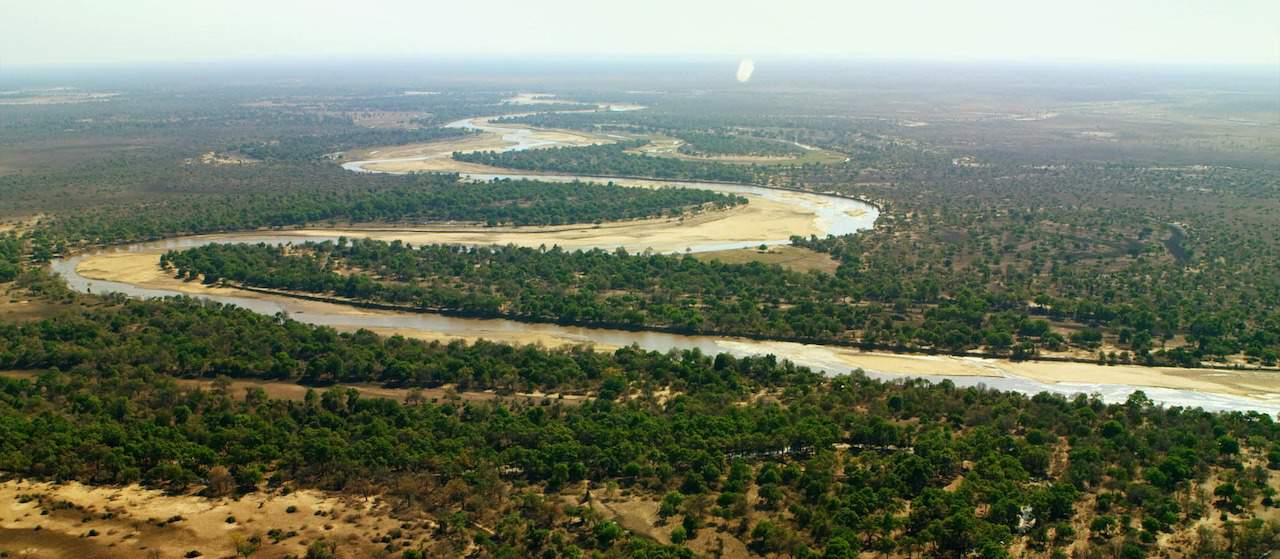
Cynthia’s Story
Her father, a suspected poacher, was gunned down by game rangers just 4 kilometers from their house. When I first talked to Cynthia in 2017, she was 12 years old and had never been to school since the death of her father. “He went to work and never came back home,” Cynthia calmly told me. I glanced at the charcoal she was selling and looked back at her. “I am selling charcoal to save enough money for my school uniform,” she quickly added. It was clear that while authorities called him a poacher that got what he deserves, Cynthia knew her father as a man that was simply working to feed and educate her. I immediately realized that unless local communities are incentivized to protect and co-exist with forests and wildlife, most conservation efforts will be in vain and will actually create more damage. Because, unlike other parts of the world, it has never been life as usual for people that call wild forests home. However short the discussion I had with Cynthia that night, it changed my leadership story. Actually, it changed my life.
In November 2018, several months after my discussion with Cynthia and founding the Mphangwe Forest Initiative (MFI), I was invited to share my experience in wildlife and forest conservation at a forum on climate change in Cairo, Egypt. There, I called on business and policy leaders to overhaul their models of enforcing conservation and shared with them how I was pioneering a very effective model that put local communities at the center of conservation. After participating in the forum’s final panel discussion, I had the opportunity to meet the president of the Arab Republic of Egypt – Abdel Fattah el-Sisi. “What inspired your amazing work?” he softly asked as we shook hands. I took what felt like 8 seconds to think of a sophisticated answer to give but could only think of a name: “A girl called Cynthia, your Excellency,” I responded as I went on to share Cynthia’s story and the lessons I got from it. The truth is, I have been passionate about wildlife and forest conservation since I was a teenager, but Cynthia’s story is what pushed me to realize that the current solutions were not helping and that I cared enough to do something about it. Not just anything, but something unconventional. To this day, I always refer to Cynthia as the primary motivation, influence, and inspiration for the work I do across different communities.
Nature Conservation – The Flaw in the Solutions
Cynthia’s story is one of many that are not told. But even when they are told, they are understood out of context. I was particularly drawn to Cynthia’s story the day I first talked to her because just as she did, I grew up in a community right next to a national park. But unlike Cynthia’s father, my mother, who was my family’s only provider after the passing of my father, was one of the lucky residents to get a job within the community. I say lucky because, aside from the scarce low-paid jobs in the parks or hotels, many of those living near national parks and forests continue to live off agricultural activities only. They live in a reality where their livestock – goats, cows, sheep – are killed by big lions and hyenas, where crops are destroyed or eaten by elephants and other animals, and where their children are at risk from death by simply walking to school. Cynthia’s father was one of them. Despite being the people that live with the wild animals and forests in the same ecosystem and bear the costs of doing so, all the millions of dollars in profits from the tourism activities are kept for the wealthy multinational hotel chains.
The World Wide Fund for Nature has noted that ”rural communities can lose entire harvests overnight to wild animals like a herd of elephants, which kill at least 200 people every year in India alone. And the victims are often people in poor areas who can least afford to lose food.” Such is evidence that we have been asking the wrong questions the entire time. By viewing part of the solution as the problem, we have crafted solutions that are grossly ineffective and sabotage our own efforts to conserving wildlife. It is largely becoming common knowledge that the times that communities have been engaged and empowered to be part of conservation efforts, in full consideration of their unique realities, success, however different, has been achieved. The African Wildlife Foundation found that “when conservation is directly connected to economic gain, it becomes second nature, especially when it results in increased crop yields and revenue for the locals.”
My Personal Motivation to Keep Going
My work in reforming poachers and charcoal burners by providing them with an alternative and sustainable source of income has not been short of challenges. Sometimes the vision to eradicate poaching and charcoal burning seems like an impossible fight to win. I would be lying if I said I have never entertained the thought of quitting. But the many families that we have engaged thus far, have been both motivating and very helpful. Many times, I have to remind myself of Cynthia’s story. The thought that many parents have to choose between having a meal or committing a crime is indigestible to me. In speaking of what keeps me motivated, I wish to mention that the recognition that my work receives from across the world has also been prime to keeping me motivated. Current conservation models are just not working and I would be failing the world if I do not make it understand just how much of harm is being caused by ignoring and killing local residents in the name of conservation.
Every morning, I wake up with the determination to ensure that leaders across the world understand that communities that live with wild animals and forests are the ones best positioned to help the wild animals and forests. Every leader I have a chance to talk to, I try to make them understand that poachers and charcoal burners are simply forest guardians and lovers struggling to survive. If we are to even stand a chance at fighting climate change, we need Cynthia’s father reformed and not killed. The story of a young girl, who I barely knew, gave me the motivation to start what I believe will change the conservation space forever.
An article by Edward Moses Mbewe, YGC 2020.
___
The views and opinions expressed in this article are those of the authors and do not necessarily reflect the views of the Global Solutions Initiative.
___

Edward, 2020 Young Global Changer, has championed various social initiatives including the Mphangwe Forest Initiative (MFI) in Southern Africa. He is a senior student of Law, Business, and Trade at the prestigious African Leadership University, an institution at which he was elected and served as president of the Student Representative Council. He has been a youth leadership consultant for various organizations in Africa.
